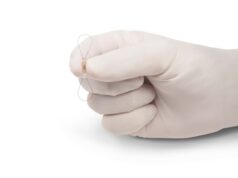 Concept Medical has announced the enrolment of the thousandth patient in ABILITY Diabetes Global (Randomized Comparison of Abluminus DES+ Sirolimus-Eluting Stents versus Everolimus-Eluting Stents in Coronary Artery Disease Patients with Diabetes Mellitus Global), which it has described as the world’s largest randomised controlled trial (RCT) for coronary artery disease (CAD) patients with diabetes as a comorbidity.
Concept Medical has announced the enrolment of the thousandth patient in ABILITY Diabetes Global (Randomized Comparison of Abluminus DES+ Sirolimus-Eluting Stents versus Everolimus-Eluting Stents in Coronary Artery Disease Patients with Diabetes Mellitus Global), which it has described as the world’s largest randomised controlled trial (RCT) for coronary artery disease (CAD) patients with diabetes as a comorbidity.
The RCT measures the safety and efficacy of the Abluminus DES+ which is designed with patented Envisolution technology and has proven to be effective in managing the proliferative CAD lesions seen in diabetes mellitus (DM). In the trial, Abluminus is compared against the XIENCE EES family (Abbott Cardiovascular).
Patient enrolment began on 11th June 2020 in Italy through principal investigator Antonio Colombo (Raffaele Scientific Institute, Milan, Italy) and the pace of enrolment since then has been steady and consistent, Concept Medical said in a press release.
The trial is targeting more than 3,000 diabetic patients across 100 centres, spanning more than 25 countries.
Roxana Mehran (Icahn School of Medicine at Mount Sinai, New York, USA), chair of the trial’s steering committee, commented: “I am encouraged by the progress we are making on this largest trial in PCI [percutaneous coronary intervention] and Diabetes and incredibly enthusiastic about the future of what we can offer to these complex patients with progress in innovation in PCI.”
Marie-Claude Morice (Institut Hospitalier Jacques Cartier, Massy, France), CEO of the Cardiovascular European Research Center (CERC), adds: “The CERC team is pleased to work hand in hand with the Mount Sinai and the Concept Medical team. We are extremely proud to achieve this important milestone. This study is significant for Diabetic patients with coronary disease who continue to be treated sub optimally with current devices. The “non-COVID” patients should not be ignored during pandemic period. Thanks to the highly motivated investigators and study coordinators, we were able to obtain consent from the respective ethics committees which enabled us to enrol 1,000 patients at such a fast pace.”










